EVENTS 
|
Tuesday, February 7
11:00 AM - 12:30 PM
NCRC Building 10,
Research Auditorium
Monday, February 13
12:00 PM
Medical Science II,
NLH-3695
Tuesday, February 14
1:00 PM - 2:00 PM
NCRC Building 10, G064
Thursday, February 16
2:00 PM - 3:00 PM
Online Webinar
Friday, February 17
*Note Date Change
3:00 PM - 4:00 PM
NCRC Building 10,
Research Auditorium
|
RESEARCH NEWS 
|
QUICKLINKS 
|
|
 |
|
Training & Professional Development
|

Select Research Funding &
Award Opportunities
|
|
Award
|
Deadline
|
|
|
Wednesday,
February 8
|
|
|
Wednesday,
February 15
|
|
|
Wednesday,
February 15
|
|
|
Wednesday,
February 15
|
|
|
Wednesday,
February 15
|
|
|
Thursday,
March 2
|
|
|
Thursday,
March 2
|
|
|
Thursday,
March 2
|
|
|
Thursday,
March 2
|
|
|
Friday,
March 3
|
|
|
Thursday,
March 16
|
|
|
Friday,
March 31
|
|
|
Friday,
May 5
|
Bridging Support
|
Award
|
Deadline |
|
|
Wednesday,
February 15
|
Other Opportunities
| Award |
Deadline |
|
|
Wednesday,
February 15
|
|
|
Monday,
February 27
|
|
|
Monday,
February 27
|
|
|
Wednesday,
March 1
|
Featured Foundation Grants
| Award |
Deadline |
|
|
Wednesday,
March 15
|
|
|
Wednesday,
March 15
|
|
*Additional funding cycle offered
|
Wednesday,
March 15
|
|
|
Friday,
March 17
|
|
|
Monday,
March 27
|
Visit the UMHS Corporate and Foundation Relations website for more foundation funding opportunities.
|

U-M Fast Forward GI Innovation Fund
|
$500K fund for potential commercialization
|

Are you a researcher working in the GI or related field and interested in innovation and commercialization?
Join the Fast Forward Medical Innovation team as they kick off the latest round of this $500,000+ funding program targeting discovery and development of future technologies to help patients suffering from gastrointestinal disease.
|
Monday, February 27
1:00 PM to 4:00 PM
Great Lakes Room, Palmer Commons
|
The three-year program targets discovery and development of future technologies to help patients suffering from gastrointestinal disease. Clinicians and researchers should consider attending this kickoff if you are...
- working on technology that could have potential applications in the GI field, and are interested in innovation and commercialization
- looking for new ideas in the GI field or want to learn about critical unmet clinical needs in the GI field
- looking for collaboration opportunities to refine and develop your idea/invention
- looking for resources to develop your idea/invention
Keynote Address: 
"A Multi-Stakeholder Perspective on Innovation, Current Trends, and Unmet Clinical Needs in Gastroenterology"
Tom Shehab, M.D.
Managing Director, Arboretum Ventures
In addition to Dr. Shehab's keynote address, you'll learn fund details, and hear from past successful awardees.
| 1:00 PM |
Ideation Session & Refreshments |
| 1:30 PM |
Keynote Address & Panel Discussion with Past Awardees |
| 2:30 PM |
Idea Refinement, Collaboration, & Proposal Preparation |
Don't miss this opportunity to learn more, connect with potential collaborators, and learn about possible resources. Questions? Email Visha Krishnan, Funding Coordinator, or call 734-764-2891.
|

DEA Announces Changes in Registration Renewal Notifications
|

Starting in January 2017, the DEA will no longer be mailing a second renewal notification letter to controlled substance registrants. Registrants will now receive the second renewal reminder at the email address on file with the DEA.
Important reminders about the DEA registration renewal policy:
- If a registration is renewed on time prior to the expiration, the registrant may continue to use their already stored controlled substances until they receive the new registration in the mail.
- If the registration is not renewed during the calendar month of expiration, then the researcher must apply for a new DEA registration.
- State and federal law prohibit the acquisition, use, storage, and handling of controlled substances under an expired license and/or registration. Possession of a controlled substance without a valid state license and DEA registration could result in fines or criminal prosecution.
|

NIH-Funded Clinical Trials
|
GCP training requirements
|
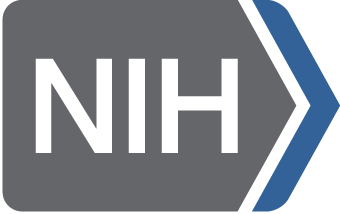
Under the NIH Training Policy (NOT-OD-16-148)
that went into effect January 1, 2017, study team members responsible for the conduct, management, and oversight of NIH-funded clinical trials are required to complete good clinical practice (GCP) training consistent with the principles of the International Conference on Harmonisation. This new policy applies to all active NIH-funded clinical trials.
|

Changes to the Disposal Process
|
Schedules I and II Controlled Substances in Research
|

The U.S. Drug Enforcement Administration (DEA) has recently identified issues with documentation associated with the disposal procedures for Schedules I and II controlled substances used in research at U-M. In order to comply with federal regulations regarding disposal of these controlled substances through a reverse distributor, the U-M Office of Research (UMOR) is changing the process, effective immediately.
In summary, the DEA research registrant or their authorized personnel will be required to complete the
Supplier
section of the DEA Form 222 and to verify the accuracy of all other portions of the form at the time of pick-up.
The DEA registrant is ultimately responsible for proper completion of the DEA Form 222.
Mandatory in-person training on this new process will be provided on the following dates:
Monday, February 6
10:00 AM - 10:30 AM
Room 1122, NCRC Building 520
Tuesday, February 7
2:30 PM - 3:00 PM
Seminar Rooms ABC, BSRB
Every DEA registrant with Schedule I or II controlled substances listed
on their IACUC protocol(s), or one of their authorized personnel,
is required to attend one of the half-hour training sessions.
|

Changes to ClinicalTrials.Gov
|

New changes went into effect on January 18, 2017. A checklist tool is now available at ClinicalTrials.gov
to help you determine whether your study is required by law to register and report results.
Please note that there are many additional reasons to register a trial beyond those shown through this tool, including but not limited to: NIH policy, external billing requirements, and preserving the ability to publish in more than 2,000 journals.
If your trial is NIH-funded, starting after January 18, 2017 (or if it is an Applicable Clinical Trial Identified by the tool listed above), when results are required to be reported, the trial will also be required to upload its entire IRB-approved protocol. This means the protocol must identify primary, secondary, and other outcomes very clearly and must be written with a potentially public audience in mind.
|

|
Upcoming Changes to ORIO Guidelines
|
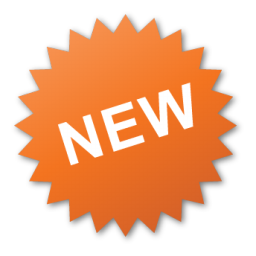
would like to notify you of a few important updates.
For more information, contact IRBMED.
|

Policy Update: Portable Device Security
|
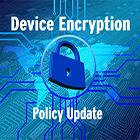
Any Unencrypted Devices Storing Sensitive Information Must be Approved
A recent revision to UMHS Policy 01-04-502, Security of Portable Electronic Devices and Removable Media, will help Michigan Medicine better align with security requirements to protect our patient's sensitive information.
Therefore, all devices that store sensitive information must be encrypted. This includes all removable media or portable electronic devices used to store, transfer, or access sensitive information.
AirWatch/Wireless Access Update
Beginning April 27, the UMHS-8021X wireless network will no longer be available to non-core imaged mobile devices without AirWatch. Beginning in April, UMHS-8021X must be used to access UMHS resources, including shared drives, internal websites (intranets), etc. If you are on the M-Wireless network, you will have to connect to the VPN to access these types of services.
Users may continue to use the MWireless network to access the Internet, but Outlook email and other UMHS resources will be unavailable.
AirWatch Enrollment Support:
- You may self-enroll in AirWatch. Instructions are available on the AirWatch Enrollment page.
- Contact the Service Desk at 734-936-8000, 24x7, for help over-the-phone.
- Visit a Help Me Now location for in-person assistance.We want to be sure that everyone is aware of the importance of safeguarding our data, our devices, and our network.
If you have questions, please contact the Service Desk by phone at (734) 936-8000 or by email at [email protected].
|

|
Attend the online webinar to have all of your questions answered!
|
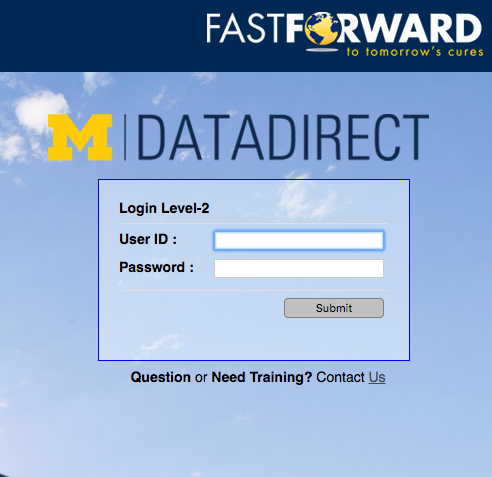
The Data Office for Clinical and Translational Research is hosting a live online training event for members of clinical research teams who are interested in learning more about the features and functionality of the DataDirect tool. This training event will take place on Wednesday, February 22.
- Trying to determine the feasibility of eligible patients for study recruitment?
- Seeking to pull data for retrospective, observational studies?
- Wanting to discover available biospecimens or genotyped data that can be linked with your clinical data?
DataDirect can assist you in your research and capture the data you need for your query. As a user-friendly self-serve tool, it provides aggregate counts for cohort discovery, and enables access to clinical data (requires IRB approval) such as diagnoses, encounters, procedures, medications, vitals, and labs, on nearly 4 million unique patients from across the Michigan Medicine enterprise.
|
Wednesday, February 22
10:00 AM - 11:00 AM
|
"DataDirect 101" is an online training designed for members of a clinical research team who are new users of DataDirect and for team members who may have logged in previously, but who could benefit from an overview of the features and functionality of the tool. Limited access to DataDirect requires PEERRS training and a level-2 password greater access requires additional prerequisites.
|

|
Health Professions Education (HPE) Day will take place on April 13, 2017
|
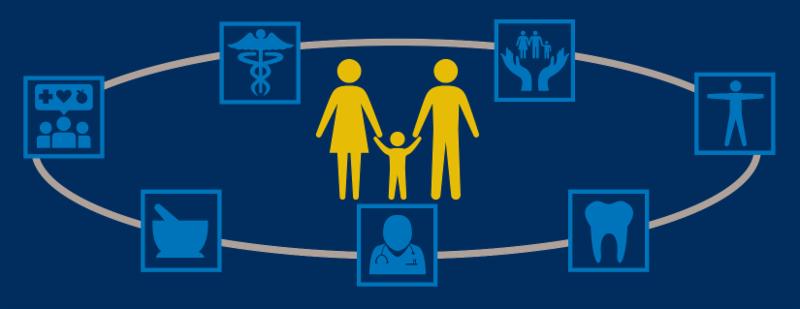
Join the Department of Learning Health Sciences for this annual event, which aims to spark interprofessional collaboration, networking, and inspiration for future research and practice for educational efforts across the health professions schools at University of Michigan.
This program will include poster and panel sessions, as well as a discussion of best practices in the implementation of interprofessional education. The planning committee invites ALL members of the Health Professions Education Community to submit abstracts for poster presentations.
Keynote Speaker:
Jeanette Mladenovic, MD, MBA, MACP
Former Executive Vice President and Provost
Oregon Health & Science University
|
Abstracts due by February 16, 2017
Thursday, April 13
8:00 AM - 1:00 PM
Michigan League Ballroom
Lunch provided - Registration required
|
|

CBSSM Hosts Research Colloquium on Tuesday, April 25
|
Featuring the Bishop Lecture in Bioethics as the keynote address
|

The CBSSM Research Colloquium will feature the Bishop Lecture in Bioethics as the keynote address. Norman Daniels, Ph.D. will present the Bishop Lecture with a talk entitled: "Universal Access vs. Universal Coverage: Two models of what we should aim for."
Dr. Daniels (pictured above) is Mary B. Saltonstall Professor of Population Ethics and Professor of Ethics and Population Health in the Department of Global Health and Population at the Harvard School of Public Health.
|
Tuesday, April 25
9:00 AM - 2:00 PM
Great Lakes Room, Palmer Commons
Presentation Abstracts Due: Friday, March 10
|
*Abstract submissions are welcome from all disciplines within UM, as well as other institutions.
The CBSSM Research Colloquium brings together presenters highlighting research related to bioethics, health communication, and medical decision making.
This event is co-sponsored by the Center for Bioethics and Social Sciences in Medicine and the Bishop Lecture in Bioethics Fund.
|

FFMI Launches New Website
|
Improved Resources for Collaboration & Education
|
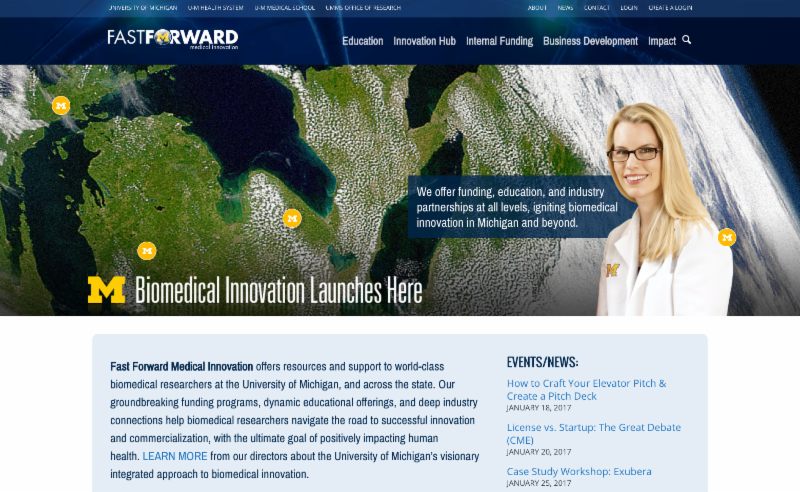
Biomedical researchers at all levels can explore the various offerings, including the upcoming FFMI fastPACE course (formerly known as the Early Tech Development Course) that kicks off March 10. This 4-week course focuses on early-stage projects and blends in-person and online education to help participants prepare a successful business case for funding and development partnerships.
Whether you're a faculty member, postdoc, student, or industry partner, FFMI invites you to look through the new website and discover the ways their team can help you find your path to groundbreaking innovation and commercialization success.
Questions? Contact [email protected] or call 734-615-5060.
|

Update: Clinical Trials Process
|
OnCore Clinical Trials Management
System live
|
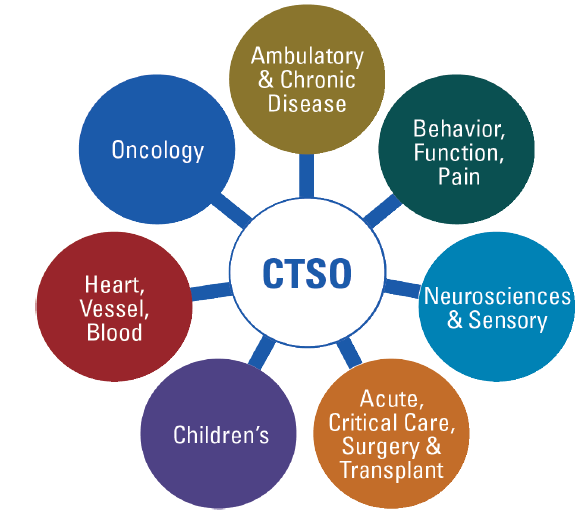
All Clinical Trials Support Units (CTSUs), excluding Oncology, will begin managing new trials and a select set of existing trials in OnCore. End User Training started on January 23 for the CTSU and Study Team members that will support trials entering OnCore in February. After training completion, all Principal Investigators and Study Teams should submit the OnCore Access form to gain access into the OnCore system.
Training will occur in late March for Wave 1 Existing Trial Migration entering OnCore in April. "Just in time" and follow-up training for new trials entering OnCore after February 1 go-live will be scheduled based on demand in collaboration with the CTSUs.
|

New Open-Access Journal for Learning Health Systems Research
|
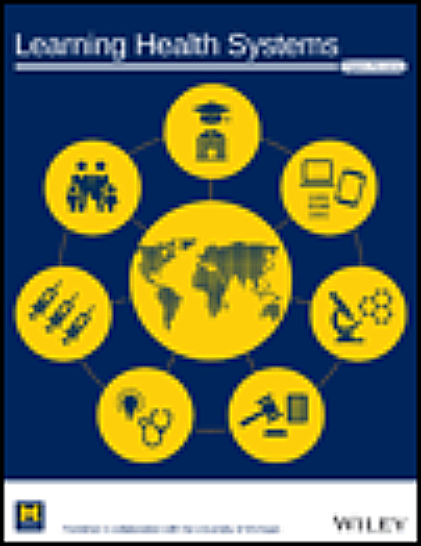
Learning Health Systems, a new, peer-reviewed, open access journal, has been published by Wiley in collaboration with the University of Michigan. With a goal of advancing the interdisciplinary area of learning health systems (LHS), the quarterly journal promotes research, scholarship, and dialog focused on theory, complex issues, conceptual syntheses, and education models designed to achieve continuous rapid improvement in health and healthcare and to transform organizational practice.
Contributors are researchers in fields such as behavioral, social, and organizational science; cognitive, information, and computer science; industrial and systems engineering, as well as other areas of expertise. Learning health systems research is focused across different levels of scale that include organizations, regional networks, and national and multi-national systems.
Published topics will include:
- Learning System theory
- Research Methodology
- Measurement studies
- Digital Knowledge Objects and Health Knowledge Management
- Human knowledge interaction and making knowledge actionable
- Public Health System Learning
- Health knowledge markets and health system incentives to learn
- Health and healthcare problem-solving
- Health profession education
- Innovative Clinical Research paradigms
- Public and patient engagement in learning processes
- Data mining and knowledge generation
- Infrastructure development and application
For more information, visit the Learning Health Systems journal or contact Kathleen Young.
|

Congratulations 2017 Mi-TRAC Awardees
|
11 projects selected for funding from a competitive field
|
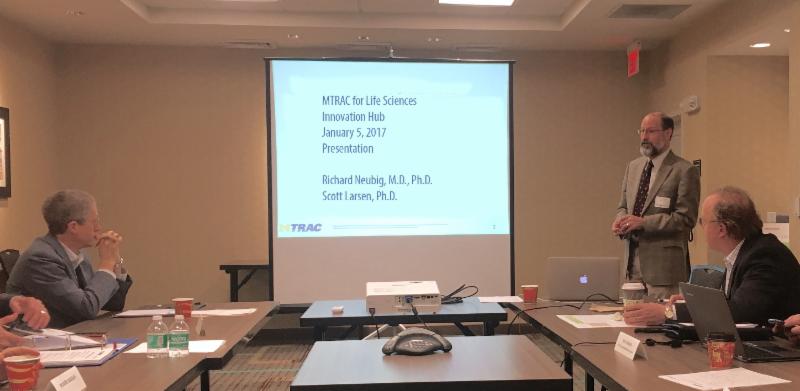
At the meeting, 14 finalists from the University of Michigan, Michigan State, Michigan Tech, and Henry Ford Health System presented
translational life-science
projects to the
Oversight Committee
, which is comprised of global biotech business experts and U-M leaders in translational science and tech transfer. Of these teams, 11 were selected for funding:
| Principal Investigator |
Proposal Title |
|
Jimo Borjigin, Ph.D.
U-M - Physiology
|
Electrocardiomatrix (ECM): A New Method for Detection of Cardiac Arrhythmias
|
Benjamin Buller, Ph.D.
Mark Katakowski, Ph.D.
Henry Ford Health System - Neurology
|
Commercialization of a Wide-Ranging Exosome Platform for Treatment of Stroke
|
Mark Burns, M.S., Ph.D.
Chandu Vermuri, M.D., FACS
U-M - Mechanical Engineering
U-M - Vascular Surgery
U-M - Emergency Medicine
U-M - Michigan Center for Integrative Research in Critical Care
|
Microfluidic Device for the Measurement of Viscosity, Coagulation, and Red Blood Cell Deformability in Blood
|
|
Xudong Fan, Ph.D.
U-M - Biomedical Engineering
U-M - Emergency Medicine
U-M - Michigan Center for Integrative Research in Critical Care
|
Micro Gas Chromatography and Breathomics for Acute Point-of-Care Diagnostics in Acute Lung Injury
|
Craig Freidrich, Ph.D.
Michigan Technological University - Engineering
Erin Baker, M.S.
William Beaumont Hospital
- Surgery
|
Antibacterial Orthopaedic Implant Commercialization
|
|
Michael Lanham, M.D.
U-M - Obstetrics & Gynecology
|
OnTrack-Development and Evaluation of Software Medication Management Service for Infertility Patients
|
|
Scott Larsen, Ph.D.
U-M -
College of Pharmacy
Rick Neubig, M.D., Ph.D.
Michigan State University -
College of Pharmacy
|
Development of a Highly Potent Inhibitor of the Rho/MRTF/SRF Pathway as A Novel Oral Therapeutic for Scleroderma
|
|
Sophia Merajver, M.D., Ph.D.
Matthew Soellner, Ph.D.
U-M - Internal Medicine
|
Dual c-Src/p38 Inhibitor for Triple Negative Breast Cancer
|
|
James Moon Ph.D.
Anna Schwendeman, Ph.D.
U-M -
College of Pharmacy
|
A Novel Nano-Vaccine Technology for Cancer Immunotherapy
|
|
Muneesh Tewari, M.D., Ph.D.
Nils Walter, Ph.D.
U-M - Hematology/Oncology
U-M - LSA/Chemistry
|
A High-Specificity, Direct Single Molecule Counting Technology to Enable Cell-Free DNA-Based Liquid Biopsy for Oncology
|
|
James Varani, Ph.D.
U-M - Pathology
|
Novel, Non-Irritating Retinoids for the Treatment of Acne
|
Questions about Mi-TRAC? Email Brad Martin, MTRAC for Life Sciences Commercialization Program Director, or 734-936-8577.
|

Future Featured Foundation Grants
for Biomedical Research
|

In addition to the quickly-approaching deadlines listed above, UMHS Corporate and Foundation Relations would like to draw your attention to the following foundations who have future deadlines for biomedical research grants:
|
Award
|
Amount
|
Deadline
|
|
|
$350K
|
Thursday,
June 1
|
|
|
$100K
|
Monday,
July 17
|
|
*Additional funding cycle offered
|
$231K
|
Tuesday,
August 15
|
Questions about these award opportunities should be directed to Joe Piffaretti in UMHS Corporate and Foundation Relations via email at [email protected] or phone at (734) 763-1318.
If you are interested in receiving weekly funding announcements that include opportunities such as those listed above, please contact Joe Piffaretti to be added to the faculty/staff email circulation list.
|
Sharpening the Focus: Tips on Grant Proposal Preparation
|

By Jill Jividen, Ph.D., Senior Manager for Research Development, U-M Medical School Office of Research
(One in a series of tips published in UMMS Research News about writing proposals.)
NIH reviews more than 80,000 proposals each year. Peer reviewers will often read about 10 proposals each, and, of those, only one is likely to get funded. When grants are so competitive, what can writers do to make their own proposals more persuasive? Some elements of persuasion are in language and mechanics of the writing, but others are in investigator preparation. Here are some tips:
Impact statement: Remember that grantmakers will only fund research to support
their missions, not yours. In other words, NIH doesn't exist to fund great research, it exists to improve human health. Clearly state how your research supports that mission, and include it on your Specific Aims page. It is imperative to describe who your will research impact, and how-even when the payoff may be down the road.
Assessment: Have you done enough legwork and literature review to ensure that your question is significant? That it fills a gap in knowledge? That it advances the field? Have you explained this well enough?
Preparation: Much of persuasion is convincing reviewers that you are the right investigator to do this research. Do you have enough experience in your field or with your chosen methodologies? If there are weaknesses in your expertise, have you chosen collaborators to complement you?
Sell Yourself: NIH changed biosketch formats in the last few years to put less emphasis on publications. While dissemination of results is still important, the "Contributions to Science" sections of biosketches are especially advantageous to early career investigators, allowing junior researchers to showcase activities other than articles.
Homework: Read examples of funded proposals, to see how others have been successful in persuading sponsors to fund their research. UMMS keeps a password-protected
Proposal Sampler with examples that have been donated by our faculty.
Critical: Always have your proposal reviewed BEFORE it gets to study section. Feedback from peers and editors is essential to success.
|
|
|